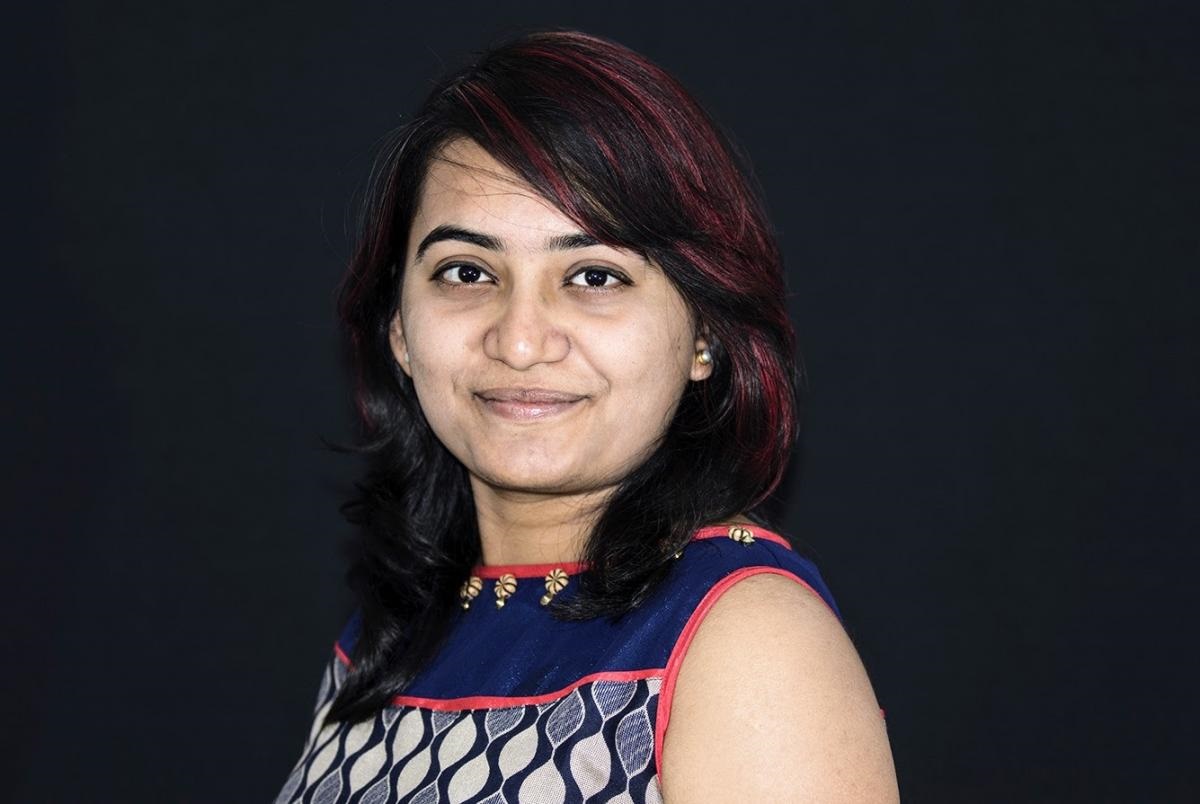Rhythima Shinde was voted TU Delft Best Graduate 2018. She researched the electrification of rural India through institutional innovation.
(Photo: Universiteitsfonds Delft)
You completed two master’s programmes within two years: Engineering and Policy Analysis, including fieldwork in India, and Computer Science, including a graduate project at ETH Zurich. How did you manage?
“I could manage because it was very clear right from the start why I wanted to combine both of the masters. I wanted to understand how to better simulate policies and that’s why I chose Computer Science and Data Science. Whenever I took a course it was very clear why I was doing it. That helped me learn much faster.”
Besides all that, you did an honours programme, you were an active board member of the Energy Club and published several journal papers and a book chapter, and you even did some student assistantships. Was it hard working under such pressure?
“Honestly, it was a bit of pressure. There were a lot of weekends where I just worked. But I never felt like I was missing anything because I came to Delft with the idea to work on these topics and interesting pieces. Colleagues supported me. It was difficult but not impossible.”
Do you have any tips for other students?
“The master’s programme provides you with a lot of freedom to choose. I think it is good to base your choice on motivation rather than on a job prospects. If a programme motivates you, you can push the boundaries very easily. What helped me was meeting industry leaders and people who are actually going to use the technology. I really tried to understand it from their perspective.”
And now you have graduated in five months on electrification of rural India. Why did you choose this topic?
“I grew up in India, so I have seen people without electricity and suffering because of it. They cannot go to school and cannot cook. Having no electricity is an underlying problem at the social, technical and cultural level. I think it is really important for developing countries to focus on this first.”
What was the biggest problem during your fieldwork in India?
“There were two big problems. The first was scalability. Solar home systems, for example, cannot be upgraded really fast for the use of bigger devices like refrigerators or three or four fans in houses. People need some form of a network for solar energy or a big network from where they can harness energy. We need solutions at a community level, like community refrigerators. The second big issue was affordability. In a lot of places, electricity is subsidised for poor people. They think it is a free service, but the government cannot give them electricity for their entire lives.”
What are your solutions?
“For the scalability, we are trying to create a platform called ‘Energy Bazaar’. This is a platform in which neighbours can buy and sell electricity. If your neighbour has solar panels, you cannot buy them yourself, you can just buy two or three hours of electricity from your neighbour. This creates a sustainable and scalable system. We optimised the platform by incorporating an algorithm which allows people to choose the best buyer or seller on the market. This was the work of one of the other master students. The second solution was simulating this system on agent-based computational models.”
What are you going to do now?
“The first thing is testing the technology in our start-up. I am also trying to do some management courses to understand how businesses work. At the same time, I am doing my PhD in environmental engineering at ETH Zurich. I really love research. I work on energy consumption and try to understand how people behave.”
Also read: Rhythima Shinde Best Graduate 2018
Do you have a question or comment about this article?
c.j.c.vanuffelen@tudelft.nl


Comments are closed.